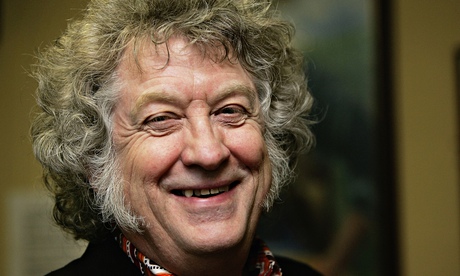
The war was a big thing in Dad’s life, but he never talked about it unless he’d had a few drinks. He served with Montgomery’s Desert Rats and a lot of his pals never came back, which left him with a burning hatred of Germans. I only realised the strength of his feeling when I dated a German girl. She came to stay with us while I was still living with my parents and he virtually ignored her. But he was a happy-go-lucky bloke. He worked as a window cleaner and everybody in Walsall, where I grew up, knew him. He was often paid like for like, so he’d clean the butcher’s windows and come home with a bag of meat. It drove Mum mad.
Like many of his generation, Dad wasn’t prone to showing affection, although I knew he loved me. The only time he was openly affectionate was when he sang songs like You Made Me Love You to my mum in front of other people. She would act all coy as if he was courting her. He was a great singer, but he had no aspirations to be professional.
I was born in 1946 – the baby-boomer generation. I had a happy childhood and we were a typical – and very close – working-class family. Mum was very loving and saw the good in everybody. I was a severe asthmatic until the age of five and she was very protective. She wasn’t able to have any more kids after me, so when I was seven she fostered two or three boys. I didn’t mind. Living in a terraced house, as I did, with three families sharing a backyard toilet, I was used to mixing with lots of kids.
When I quit school at 17 to focus on music, Dad didn’t try to dissuade me, even though he got a lot of stick from my teachers because he was the school window cleaner. My parents were very proud of my later success, but they weren’t that impressed with material wealth. I always remember Dad saying: “You only need one meal a day, one pair of shoes and a roof over your head. Everything else is a bonus.” When I first made some real money, I tried to buy them a nice house in the Midlands, but they wouldn’t part with their family and friends.
Mum and Dad saw me play only once with Slade after we became famous – at a gig in Wolverhampton in 1973. Although they’d seen us on television, they hadn’t realised how successful we were. They were overwhelmed by the volume and crowd reaction, and couldn’t relate to my stage persona. It changed their attitude to me.
Dad died in 1988 and it hit me hard. He’d had loads of things wrong with him, including bad arthritis from doing the windows in all weathers. Mum passed away in 2002. She’d come to stay with us over Christmas and we found her dead in the armchair on Christmas Eve morning. I think she’d held on just long enough, so we could be together.
My first wife, Leandra, designed clothes for rock bands. She didn’t like me at first. She thought I was a Jack the lad, which I was, and didn’t think Slade was a very cool band. But she learned to like the other side of me and we got married when she got pregnant with our first child, Charisse. Jessica came along two years later.
I met my second wife, Suzan, who is 19 years younger, on a TV show – she was a researcher. We started talking about 1950s music in the green room and later I asked her out. A lot of people thought our relationship was doomed, but we got married in 2004. We have a lot in common, but we also have a feisty relationship.
Our son, Django, who is 20, was born when I was 49. I never expected to be a dad again and thought long and hard about whether it was the right thing to do, but decided to go for it. It was one of the best decisions I’ve ever made. We named him after Django Reinhardt, the French Gypsy jazz guitarist, whose music I love. It suits him. As soon as I saw him, I thought he’s a Holder and a Django!
• The World According to Noddy: Life Lessons Learned In and Out of Rock ‘n’ Roll is published by Constable

